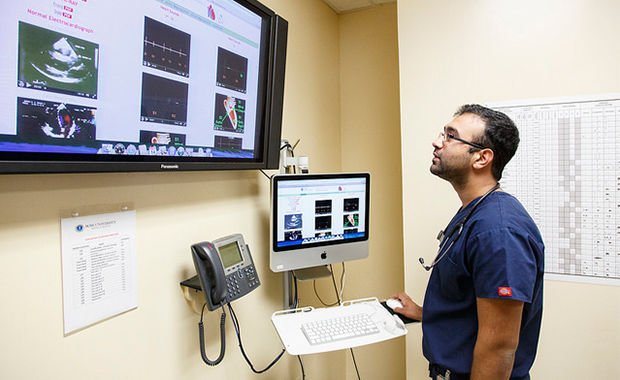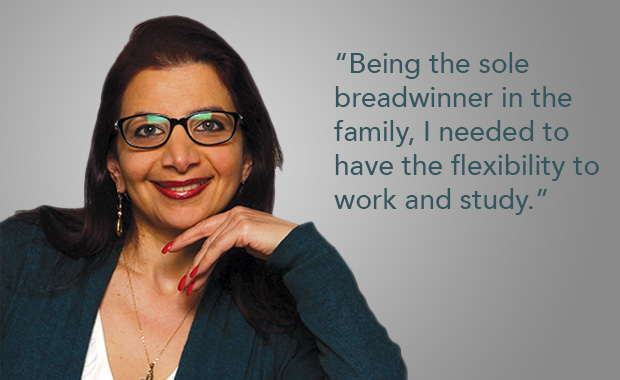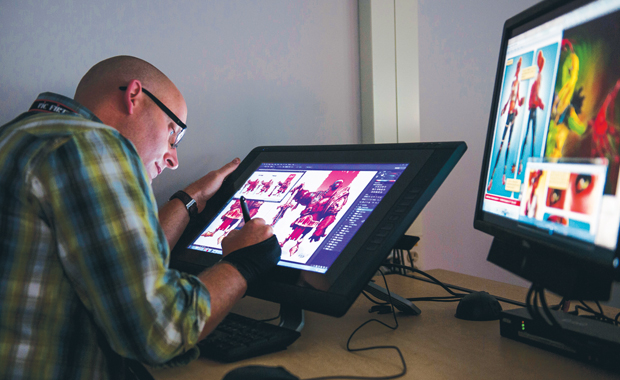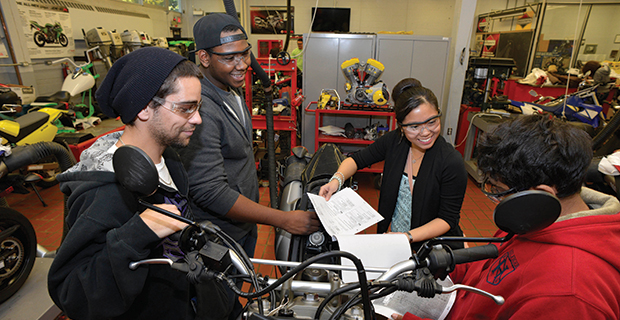Staying Ahead Of The Trends With Continuous Learning
Industry Insight Dr. Marie Bountrogianni shares her expert advice on online learning and more in this exclusive interview.
What advice would you give a potential student considering an online education program?
Online learning gives you freedom and flexibility, but it also means being self-motivated and self-disciplined, so create good habits from the beginning, such as creating a regular routine of logging in to review course material and post to the discussion board. It’s important to start planning as soon as possible and figure out your schedule.
Get connected to other students through an online community and actively participate in online discussions and activities to maximize learning opportunities.
Before you log in, become familiar with popular online tools such as video streams, podcasts, and wikis. Online education has changed over the past 10 years – from electronic versions of correspondence courses to a Web 2.0 classroom.
With today’s continuing education being more accessible and flexible than ever before, students should do their research and figure out what will be the best choice for them. The variety of learning formats is practically endless – from in-class to online, daytime, evening, weekend, and even intensive ‘bootcamps.’
What would you say is the greatest advantage of distance learning programs?
The greatest advantage of distance learning programs is the flexibility. The student is in control of when and how they learn. You can learn anywhere, at any time. It offers a convenient way to support busy professionals with multiple commitments.
Working adults are looking for opportunities to upgrade their skills; however, the decision to go back to school is competing with work, family, and other personal activities. The online format allows them to have flexibility in their education.
Online learning also offers a solution to the skills gap, helping people retrain and retool for changes in the economy.
When you look at technology-based online learning, the opportunities and benefits go far beyond flexibility in scheduling. It also offers students chances to augment their learning through new and innovative teaching tools, videos, augmented/virtual reality, etc., to really deliver a unique learning experience.
Technology has also allowed education to become relevant and accessible to a larger number of people who might not have pursued further education.
How have innovations in technology improved the online learning experience?
Using tools like virtual or augmented reality, virtual role-play, etc., have all augmented the learning experience online.
New technologies are also making it quicker and easier to communicate in real time with classmates and instructors, which helps students to feel connected to their peers.
In today’s challenging job market, why should someone consider continuing their education?
The majority of students cited updating existing skills or learning a new skill as their reason for enrolling in continuing education. We live in the knowledge economy, which challenges us all to be lifelong learners, staying ahead of the trends. By pursuing continuing education you are equipping yourself with the skills needed to stay in-demand and for new opportunities. In today’s job market, continuing education plays a significant role when it comes to career development. Continuing education helps individuals build on their existing knowledge to learn practical skills that will aid them in finding a new career or advancing their current career – and transform their lives.
"By pursing continuing education you are equipping yourself with the skills needed to stay in-demand and for new opportunities."
What is your advice to someone who’s exploring the possibility of going back to school to continue their education?
When choosing a continuing education program, look at the specific learning outcomes for the program and ensure they match the needs of the industry or career that you are looking towards. For example, gaining credit or credentials for industry designation.
Also, look for flexibility and for a program that will allow you to meet and network with like-minded individuals. With so many learning options – from in-class to distance education – working professionals now have the flexibility to become lifelong learners.
What are some of the biggest challenges in growing the continuing education sector?
People are busy! It can take a big mental leap to commit to continuing education. But it’s so important to see education as your own professional development and as a way to stay ahead of the curve in your industry.
Where do you think that the continuing and online education industry is headed in 2015?
Customized learning will be huge. It's a knowledge economy, and mature students are holding full-time jobs while going back to school – not to mention other commitments like family, volunteering, etc. Today’s learners need flexible options to gain new skills or refresh old ones and are increasingly looking to online options for their learning needs. Students will continue to move online to do their training and they will seek training 365 days per year.


.jpg)










.jpg)


.jpg)












































.jpg)


